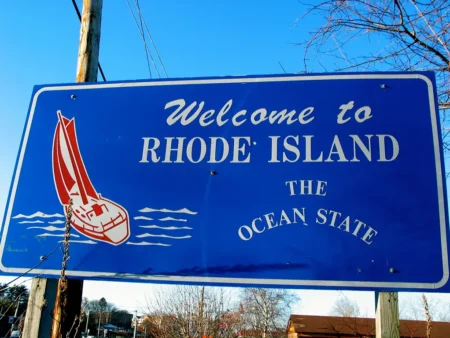

New Jersey first legalized online casino gambling in 2013, which became a vital source of income for Atlantic City casinos, especially during shutdowns ordered by Governor Phil Murphy during the early part of the COVID-19 pandemic. To keep online gaming legal, legislators have until November to renew the law, which initially approved internet gaming for a ten-year period.
Online casino sites have steadily increased their revenues in the last decade as the nine retail casinos in Atlantic City continue to see a decrease in revenue. The likely reason is that ten years ago, there were no retail casinos in surrounding states like New York, Pennsylvania and Maryland. Today there are 39 brick-and-mortar gaming locations in those states.
Bills Make Their Way Through Senate and Assembly
Lawmakers didn’t put the gaming statute high on their priority list for the fall legislative session because of more critical issues. SB 3075 was approved by the Senate Budget and Appropriations Committee on Monday after passing the Senate State Government, Tourism, Wagering, and Historic Prevention Committees. While this is a significant step, it’s not the only proposal on the table to extend online gaming.
Another bill was introduced by the State Assembly, co-sponsored by Republican members Claire Swift and Don Guardian, that looks to support the continuation of online gaming in New Jersey. If another bill is passed, it would also mirror the previous legislation that allowed online gambling for ten years.
iGaming Means Big Revenue
Pro-gaming advocates want online casino gambling to continue in New Jersey, with revenue for the state steadily growing after only modest gains in the early years. Online gaming only represented a small percentage of Atlantic City casino revenue in 2015, totaling $148.8 million. However, in 2022, gross online gaming revenue exceeded $1.6 billion.
In the last several years, online casino gaming has represented more than $250 million in annual tax revenue for the state through the Casino Revenue Fund. iGaming revenue in New Jersey more than doubled between 2019 and 2020 when all Atlantic City casinos were closed during the pandemic.
While Atlantic City casinos likely gained some revenue from players who switched from retail gaming to playing online, Atlantic City casinos don’t make as much from the online gamer. Revenue must be shared with online software providers, and online players don’t purchase items like food and drinks.
Gambling Addiction Legislation Also Proposed
Legislation was proposed in May to establish a “diversion court” program to help people that have committed a crime get improved treatment if a problem gambling contributed to the offense. The pilot program would be established in three state court districts and require the person seeking to enter the program to pay restitution. According to the bill, it would all be managed by a licensed psychologist or gambling addiction counselor.
Lawmakers also proposed legislation in New Jersey to manage the increase in problem gambling among college students. The bill would require colleges and universities to have a gaming addiction hotline prominently displayed to help provide support and raise awareness.
This proposal also comes at a time when the issue of college athletes and sports betting is at the forefront, with recent incidents spotlighting the need for responsible gaming practices.
May also saw legislation proposed that looks to provide support rather than punishment for underage individuals fighting gambling addiction. The legislation would give judges the option to consider ordering treatment instead of fines for gambling-related offenses.
Last Updated on by Patrice











